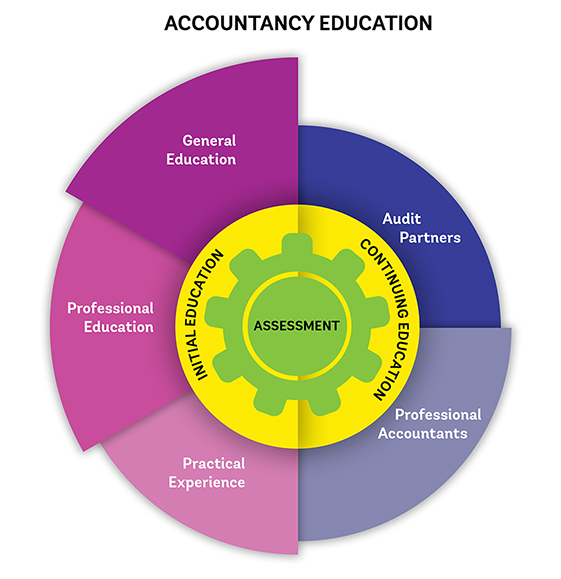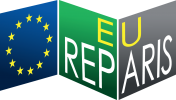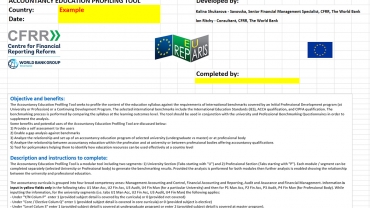There is widespread recognition that in order for markets to function efficiently and for economies to grow, reliable and credible financial information is vital. Producing high quality financial information is supported by sound accountancy education systems that develop and improve the competence of professional accountants and contribute to enhanced public trust and confidence in the quality of their work.
Accountancy education is multilayered and well-developed accountancy education programs comprise technical competencies, professional skills, and professional values, ethics and attitudes. It starts with Initial education that includes all the training that aspiring accountants need to complete in order to begin their career: general education (e.g. high school, university), initial professional accountancy education (usually delivered through PAOs), completion of practical experience (to learn on-the-job skills under the tutelage of a skilled accountant or auditor), and finally, passing a formal assessment of the requisite technical competencies, professional skills, and professional values, ethics and attitudes. Continuing education includes learning and development undertaken to maintain technical competencies, professional skills, and professional values, ethics and attitudes over the course of a career.

The Education Community of Practice (EduCop) of the EU REPARIS program supports the development of internationally compatible accounting education systems in the Western Balkan countries several levels: (i) for professional qualification, (ii) continuing professional development, and (iii) at university level. There is substantial commonality of curriculum content, qualification systems, and lifelong learning requirements being addressed on a regional basis by the community of practice. Topics include the implementation of International Accounting Education Standards and application of the education requirements of the EU Statutory Audit Directive.
Benchmarking Tool
To facilitate the Accountancy Education Benchmarking Study a diagnostic tool was developed to map the curricula content, learning outcomes and proficiency levels of the accountancy programs and compare them against internationally-recognized benchmarks. Benchmarking Accountancy Education offers benefits for many stakeholders, including students, universities, PAOs, employers and policymakers and can be approached from various perspectives. It supports self-assessments, gap analysis, baseline assessments and diagnostics, but also is a powerful decision making tool and tool that supports development of schedules of syllabus content which serve as evidence to support an application for accreditation or international recognition.
The development of the Accountancy Education Benchmarking Study and its related methodology has been supported by expert teams of the International Accounting Education Standards Board™ (IAESB)™ and the International Federation of Accountants® (IFAC®).
Disclaimer: This webpage was created and maintained with the financial support of the European Union. Its contents are the sole responsibility of CFRR and do not necessarily reflect the views of the European Union.






